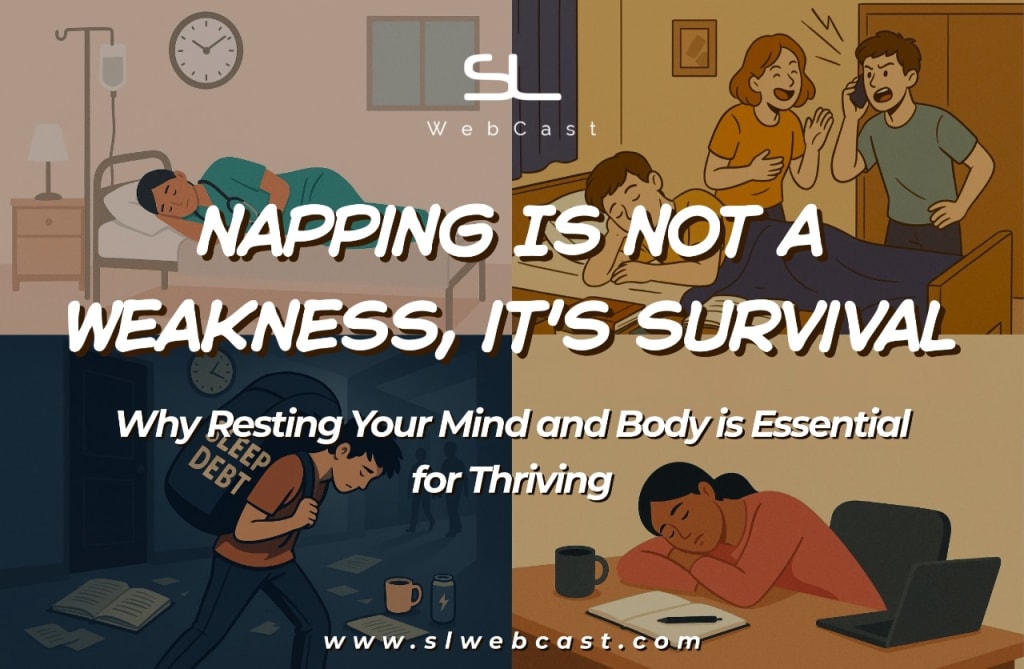Why rest should be treated as essential care, not a character flaw
In clinical terms, fatigue is not just a feeling – it’s a physiological alarm. Yet, in a world obsessed with productivity and performance, the simple act of resting has been mislabeled as laziness. Napping, especially in high-stress environments like medicine, is not a weakness. It is a neuroprotective strategy – a momentary shutdown that prevents systemic overload. Just as we would never hesitate to manage a patient’s exhaustion, we must learn to manage our own. A nap is not an escape from responsibility; it is a recalibration of our nervous system – an essential intervention for cognitive and emotional survival.
The Brain Was Not Built for Non-Stop Hustle Even the hypothalamus surrenders by afternoon - don’t fight physiology

The human brain, no matter how brilliant or determined, is not a machine built for uninterrupted output. Deep within its core, the hypothalamus – the very center of our biological clock – sends out a quiet but clear signal each afternoon: slow down. This dip in energy isn’t just “feeling sleepy after lunch.” It’s physiology. It’s the body’s way of asking for balance. Yet in medical culture, where powering through exhaustion is often mistaken for dedication, this signal is ignored – suppressed with caffeine, guilt, or sheer willpower. But ignoring your biology doesn’t make you stronger. It just makes you silently burn out. As future doctors, we are trained to recognize early signs of system failure in others. It’s time we do the same for ourselves. Rest isn’t resistance to productivity – it’s protection from collapse.
Sleep Debt Is Real - And It’s Gaining Interest Chronic exhaustion quietly eats away at performance, focus, and mood
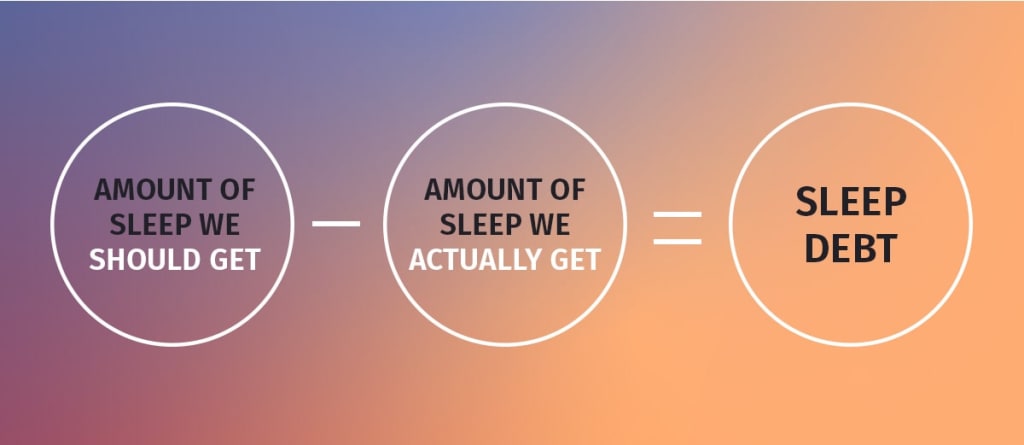
What begins as a skipped nap or a late-night revision slowly accumulates into something heavier – sleep debt. And unlike assignments or exam dates, sleep doesn’t vanish when missed; it piles up quietly, waiting to be repaid. Medical students often push through consecutive days of exams with minimal rest, fueled by adrenaline and anxiety. But observe what happens the moment the last paper ends: we crash. Many sleep through the entire next day – not because they’re free, but because their body is finally collecting what it was denied. This isn’t overindulgence – it’s recovery.
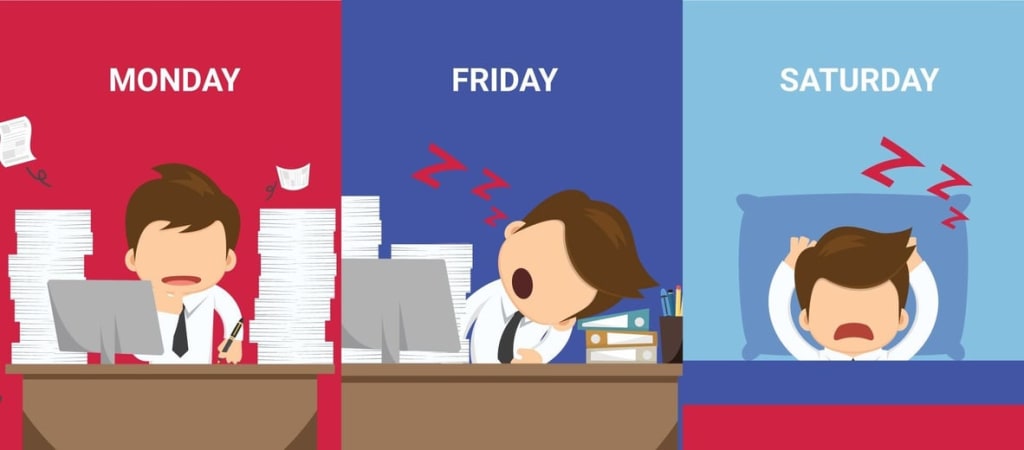
Chronic exhaustion rarely shouts. It creeps in – through forgetfulness, irritability, loss of focus, and a growing sense of emotional disconnection. You may still be present in class, on the ward, or at your desk – but your brain is operating in low power mode. And just like financial debt, sleep debt collects interest – through burnout, poor decision-making, and emotional fatigue. Listening to your body early isn’t weakness – it’s clinical sense. It’s how we protect the very system we depend on.
This Isn’t Escapism - It’s Biology Rest is not laziness. It’s how the brain consolidates, refills, and recalibrates.
Napping has long been misunderstood – as if it’s a shortcut, an excuse, or worse, a sign of weakness. But in truth, it’s not a break from responsibility – it’s a response to biology. When we nap, our brain doesn’t power down – it powers up. It begins to consolidate what we’ve learned, regulate emotional circuits, lower stress hormones, and reset cognitive sharpness. It’s not about being tired of life; it’s about giving life a chance to continue without collapse. That rest after back-to-back lectures or postings? It’s not laziness. It’s your hippocampus recalibrating, your limbic system settling, and your prefrontal cortex preparing for its next demand. Rest, in this context, is repair. The real escape would be pretending we don’t need it.
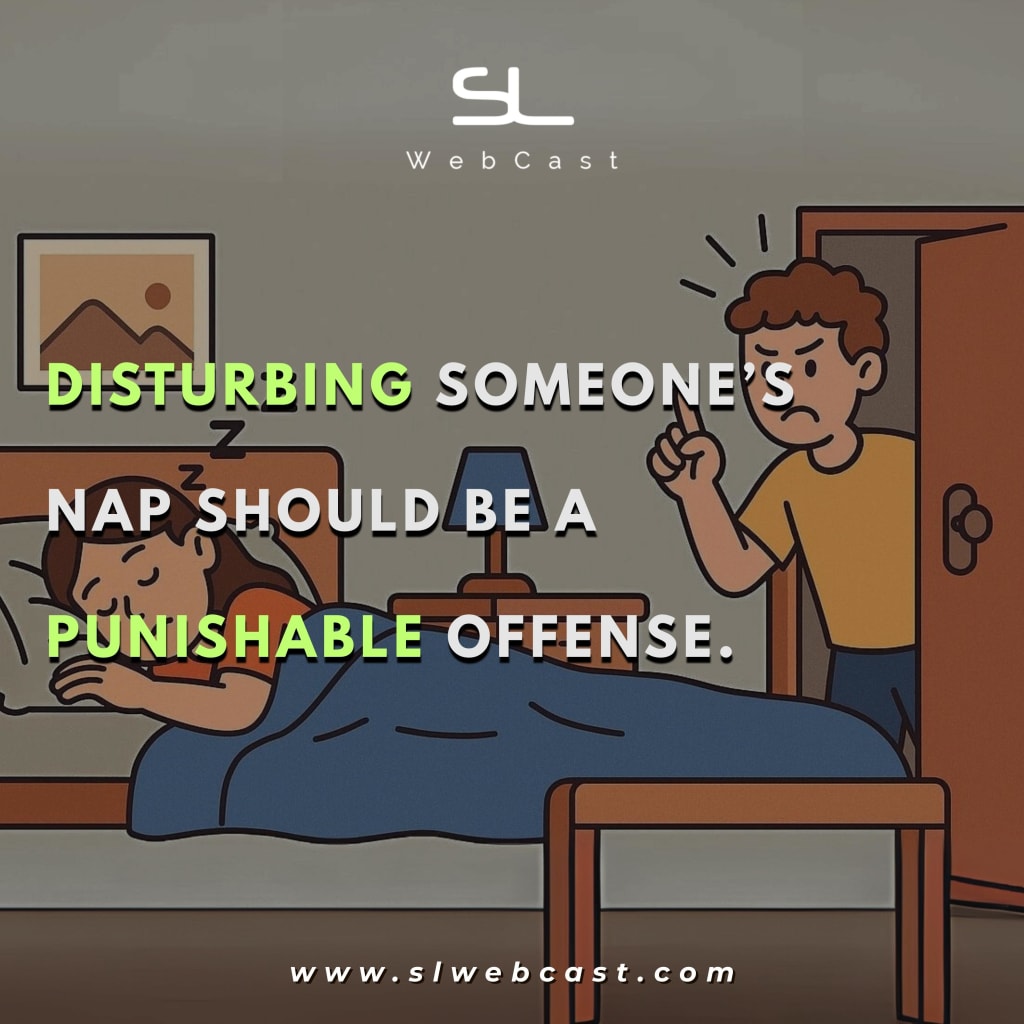
The Hostel Bed Knows the Truth When peace is rare, even a small nap becomes a full-body recess
In hostel life, sleep isn’t always scheduled – it’s stolen between survival tasks. A narrow bed becomes the body’s only refuge after sleepless nights of study, exams, or long clinical postings. For many students, even a 15-minute nap isn’t luxury – it’s neurological CPR. But peace is fragile. Just as the body begins to relax, noise barges in. A sudden laugh, a banging door, a phone alarm left ringing, or a roommate casually speaking loudly on a personal call – as if no one else is trying to rest.
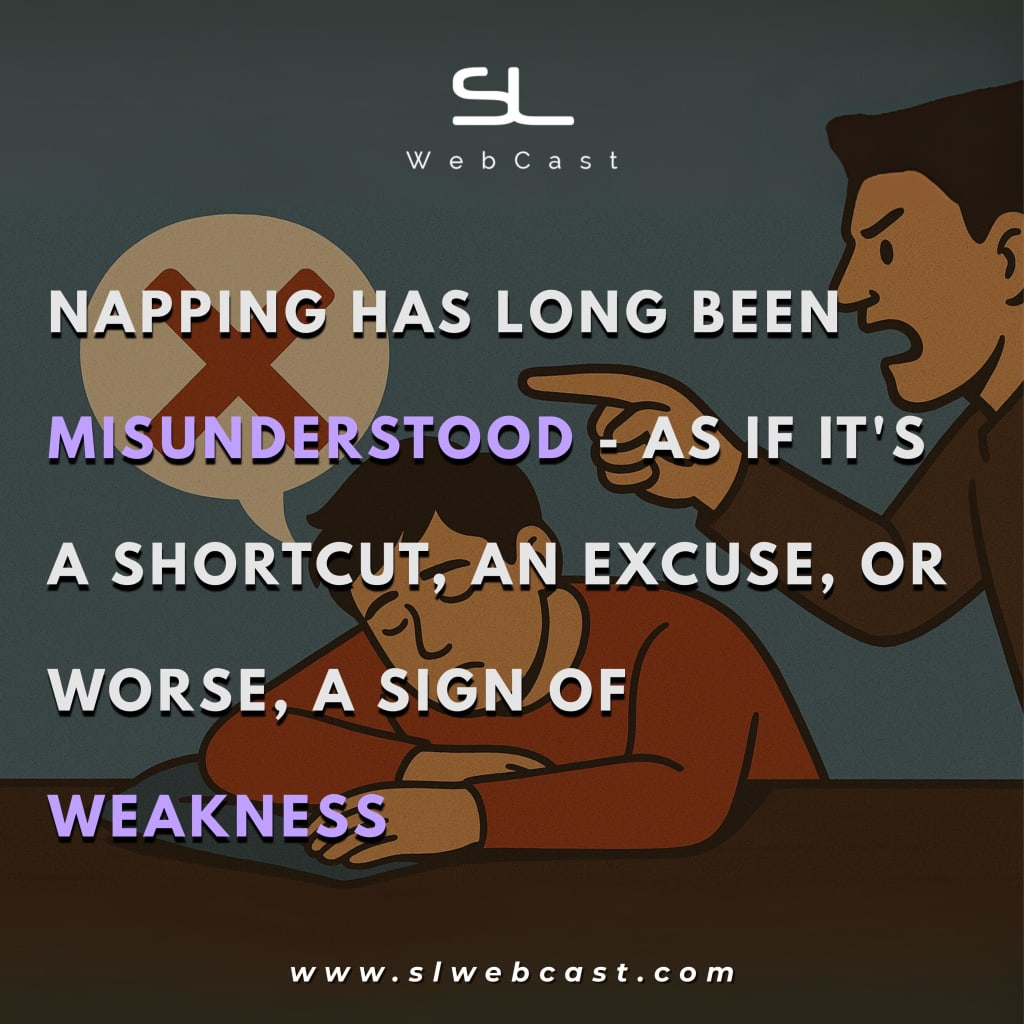
Let’s be honest – disturbing someone’s nap should be a punishable offense. Not metaphorically. We mean it. Because in this battlefield of exhaustion, that nap isn’t leisure – it’s survival medicine. After a draining posting or a brain-numbing lecture marathon, when one roommate finally crashes into bed for just a sliver of peace, the room should turn into a quiet zone by default. And yet – cue reality – one of them tiptoes, dims the light, silences the phone. The other? Storms in like they’re headlining a concert. Phone glued to their ear, voice on full volume, tossing books and banging cupboards like it’s a boxing ring. No awareness. No mercy. Just chaos.
This isn’t just hostel behavior – it’s hostile behavior. You’re not being energetic – you’re being the reason someone’s system doesn’t reset. That nap might be the only rest they’ll get before diving back into another 5-hour stretch of survival. And if you can’t offer silence, the bare minimum is not stealing it. Because in a world where we treat patients with compassion, how about we extend just a little of that to each other? Let them sleep. You might not see the tiredness – but trust me, their nervous system is screaming for it.
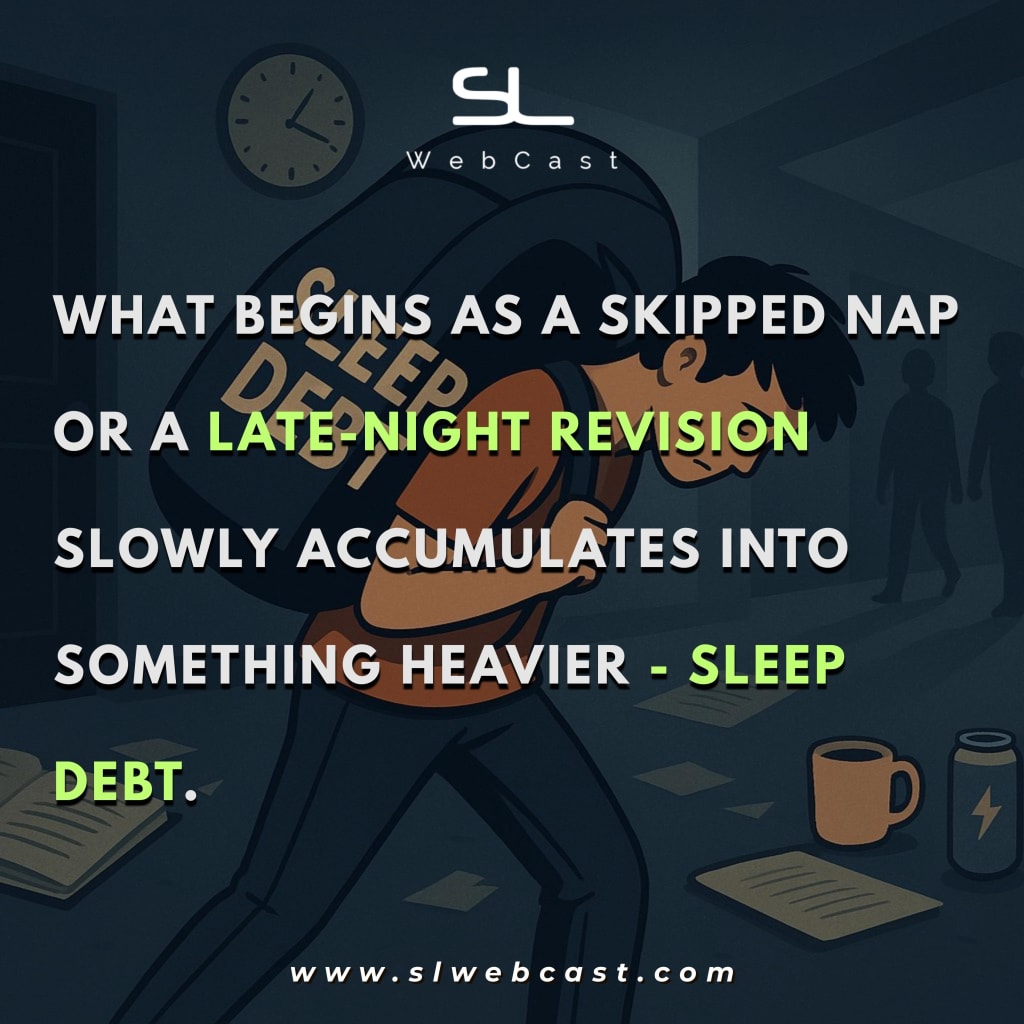
You Don’t Know Their Syllabus - So Don’t Judge Their Sleep Some carry burdens you’ll never see - academic, emotional, or otherwise.
Here’s the reality: not everyone is just managing lectures and logbooks. Some are quietly enrolled in extra courses or certifications. Others are carrying heavy emotional weight – like homesickness that comes in waves, family problems they never speak of, financial pressure, health issues, or simply the crushing loneliness that hostel walls often hide. Everyone is fighting a different battle, and most of it happens silently.
And no – they don’t owe you an explanation.
You don’t get to say, “You never told me you were doing extra work,” or “Why didn’t you mention what you’re going through?” because not everyone wants to open their heart just to be believed. Privacy is not a crime, and suffering doesn’t need a microphone to be real. It’s basic decency to accept that people might be carrying more than they show.
So when someone chooses to nap in the middle of the day – respect that. Don’t label them lazy. Don’t expect justification. Because sometimes, that nap is not for tired eyes – it’s for a tired soul.
And respect isn’t earned by explanation. It’s offered by understanding.
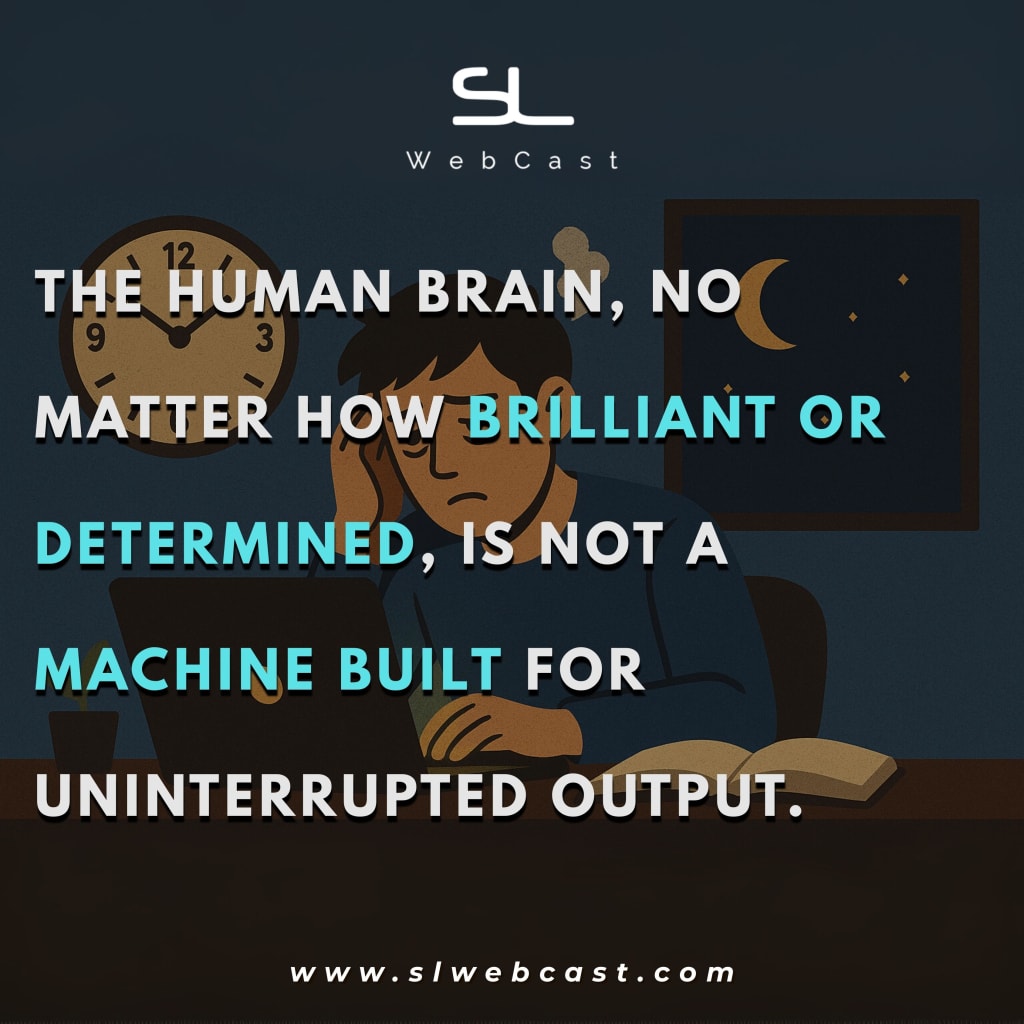
The Medical Student’s Guide to Napping Anywhere Staircases, benches, lecture halls - survival requires creativity.
One of the first unspoken skills in medical school is this: how to nap anywhere, anytime, under any condition. You don’t wait for the perfect bed – you adapt. The air-conditioned lecture halls become nap chambers during long presentations. Library corners serve dual purposes – study spots and recharge zones. Common rooms, prayer rooms, and even canteens often witness tired heads resting on folded arms, trying to grab 10 minutes of peace before the next round of stress. Some stretch out on benches. Others curl up in chairs or sit motionless with eyes closed, in the middle of murmurs and trays clinking. Staircase landings? Those too. If it’s horizontal, or even half-horizontal – it works.
Survival in med school requires creativity. Sleep isn’t scheduled – it’s stolen. And when you’re running on mental fumes, you don’t look for luxury – you settle for anywhere your body agrees to pause.
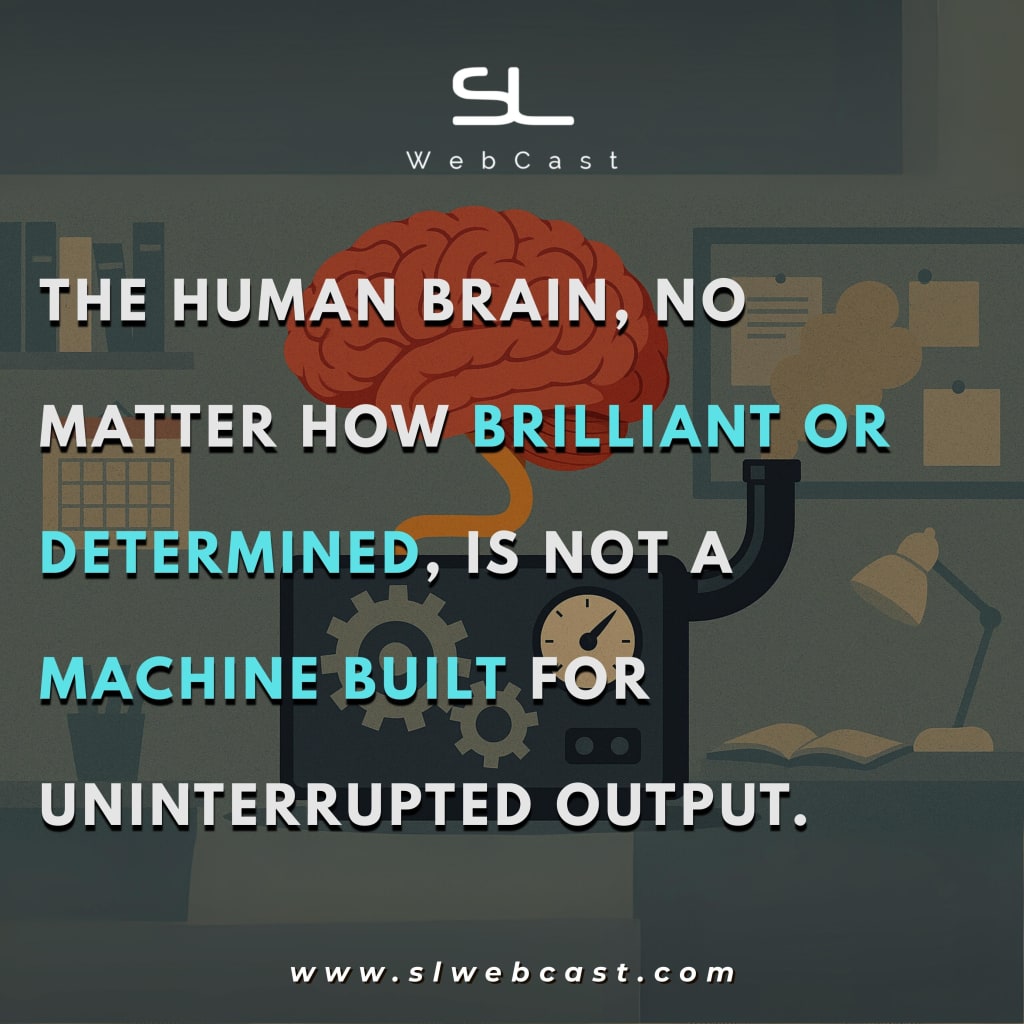
It’s about the working woman who sets her alarm before sunrise and still gets blamed for being tired.
It’s about the mother studying for finals with one hand and rocking her baby with the other.
It’s about the undergraduates juggling double degrees and unpaid expectations.
It’s about the quiet men who never speak of their stress, but carry the weight of entire families on their backs.
It’s about all of us, living in a world that asks too much and rests us too little.
So yes – let us nap in lecture halls. Let us rest in prayer rooms. Let us steal sleep in canteens and corners. Let us close our eyes without needing to justify why.
Because when we rest, we don’t fall behind – we rise prepared.
And only when we are rested, do we remember what we really are:
Learners. Caregivers. Humans.Not machines.
Nap like a rebel.
Rest like a warrior.
Rise like a healer.


